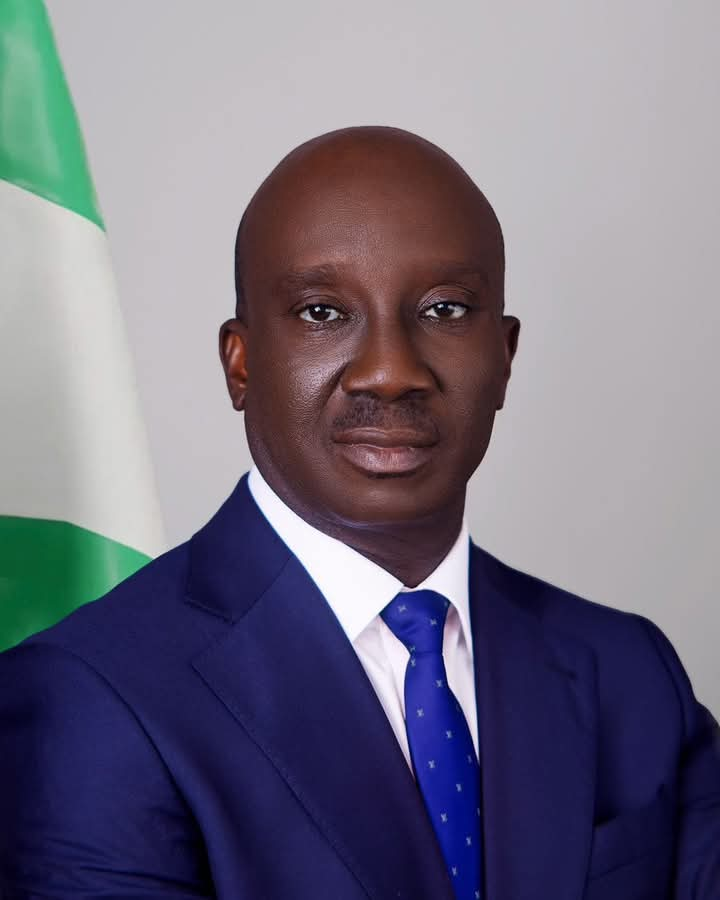Hello my people.
It’s been quite a while I shared from my diary. A lot that has happened in that time. Going forward, I promise to make these entries more frequent to help you understand my vision and how my mind and spirit work.
Growing up in Uwesan gave me many childhood stories that, at the time, were just entertainment. But as I grew older, I began to see the lessons hidden in those stories. Many of them shaped my present mindset and inspired how and why I do the things I do. It is always my delight to share these lessons with you.
As I reflect on the past one year of privileged service as governor, my mind goes to some of the criticisms that have come my way. One that particularly gets my attention is the claim that I have focused too much on my own senatorial district, Edo Central. Some have been more specific to add that I have neglected Edo South, and have even gone as far as saying I am tribalistic in my appointments and project siting.
Let me respond to that by telling you one of those old stories from my childhood.
A certain farmer had three sons, each living in a different part of his large farmland. The eldest had rich, fertile soil and always harvested plenty. The second had fair land but little water. The youngest had dry, stubborn soil that yielded nothing but dust and disappointment.
One day, the father called his sons and said, “Let us dig a well together, not in the fertile part, but in the dry land.” The eldest son protested, “Why waste our time there? My farm already has water.” The father smiled and said, “Because when the dry land becomes green, the whole farm will flourish.”
That story stayed with me. Because that, in truth, is how leadership and development should work. Fairness is not measured by who shouts the loudest or who already has the most. It is measured by where help is needed most.
Of course that criticism is wrong.
When you look beyond the noise and into the numbers, the truth becomes clear. Out of the over 250 kilometers of ongoing road projects across Edo State, Edo South accounts for more than 52%. In our school renovation and construction projects, Edo South again leads with 36%, while the remaining two senatorial districts share the rest equally. In our community electrification projects, Edo South has 36% while Edo Central has 61%, not because of favoritism, but because many of those communities had never been connected to electricity and had lived in darkness for decades.
These are not random figures. They are the result of deliberate planning guided by fairness, need, and inclusiveness.
When I assumed office, I made a personal covenant with God to lead Edo State with His fear, and a clear conscience. Every appointment I make, every project I approve, every decision I take, is guided by one simple question: Where and how will this have the greatest impact?
Development must not stop where the tarred roads end. We must not build only where the applause is loudest. I dream of an Edo where growth reaches every corner. Where rural communities begin to rise again. Where children in remote villages no longer walk miles through muddy paths to reach a school. Where farmers can move their produce easily to the market. Where electricity brings life and hope to small towns that have known only darkness.
I ask, why can’t we have more “Benin-Cities” across the state?
Imagine a thriving Akoko-Edo as a major hub for solid mineral mining. A vibrant Etsako-Central with agro-industrial parks. A bustling Ubiaja with small manufacturing clusters. An Uromi with tech hubs. Or an Ovia with active riverine trade routes. Think of the jobs, the rise in property values, and the increase in trade and commercial opportunities that will follow. When development spreads, the economy expands. Urban migration reduces. Prosperity becomes balanced. And every citizen, no matter where they are born, feels the hand of government.
This vision is not new. It is the same dream that inspired Dr. Samuel Osaigbovo Ogbemudia, who built roads, industries, and schools across the old Midwest. It is the same conviction that moved Professor Ambrose Alli, who built a university in Ekpoma and turned a small town into a centre of education and commerce. It is the same philosophy that guided Comrade Adams Oshiomhole, who opened up rural communities with roads and red roofs that still speak for him today.
One major project can transform a community for generations. Ekpoma flourished because of Ambrose Alli University. Iyamho rose to prominence because of Edo University. The principle is simple: development follows vision.
That is why, under my administration, we are spreading opportunities, infrastructure, and hope across Edo State. It is not about tribe. It is about balance. It is about fairness. It is about ensuring that the child in Ogbona and the child in Ugbowo both have access to good roads, quality schools, and the chance to dream big.
I know politics will always look for division where unity exists, but the truth is this: I am governor of Edo State, not of any tribe, zone, or religion. My loyalty is to the people who trusted me with their future, and my duty is to every man, woman, and child who calls this land home.
To me, fairness is not giving everyone the same thing. It is giving everyone what they need to stand tall.
And that is exactly what we are doing.
Sometimes, the best way to grow a forest is to water the driest ground first.
*#SMOsDiary*
—
_SMO’s Diary’ is a behind-the-scenes account of the daily engagements, thoughts, and leadership moments of the Edo State Governor, Senator Monday Okpebholo (SMO), as shared through the lens of the Special Adviser on Media and Publicity._

